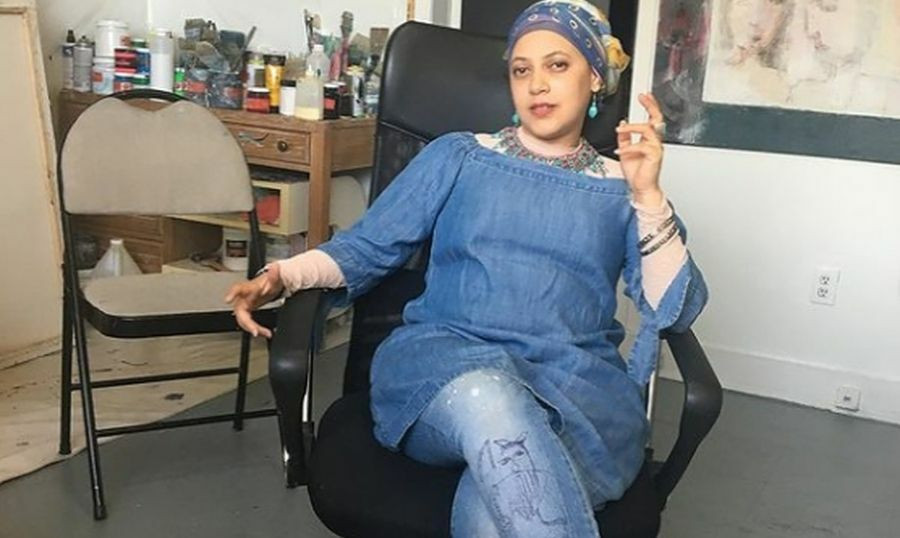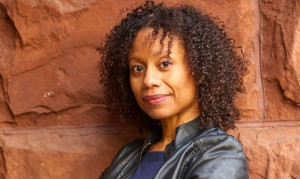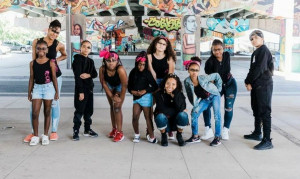The Centre is a non-profit charitable organization that opened in 2014 with the main aim of supporting artists at any stage of their career, with a focus on Black Canadians, people of colour, immigrant artists, and persons with disabilities. A Black woman, Muslim, immigrant artist herself, Alamary had sacrificed much and pushed boundaries before she was able to become a go-to colleague for other immigrant artists. “I used to scribble on papers as a child," says Alamary, recalling how she discovered her talent. "I'd never realized that art was my thing until a friend in high school advised me to go to art school after she observed that my scribbles were actually sketched pieces of art.”
Alamary studied at an art school in Ethiopia. After spending some time trying to eke out an existence as an artist, she began to consider pursuing a career in information technology instead. As fate would have it, her attempts at switching careers didn’t pan out. “I realized that I was meant to do art because it is the only thing that brings me joy in life,” Alamary explains. ‘’The thing is, once you find your passion in art, your life is incomplete without it."
The Ups and Downs of Life in a New Land
15 years ago, determined to pursue art full-time, abstract artist Alamary made the move to Canada. Despite her ambitions, Alamary's attempts to jump right into the Canadian art world weren't initially successful. “I came here with very little understanding of the art industry and didn’t know how to navigate it,” Alamary admits, sharing her frustration. Alamary believes Toronto to be a big city full of talented artists and art galleries with a government that encourages artistry through different grant funding opportunities. However, with so many artists in the city, competition is fierce, and gaining insight and guidance on the existing opportunities is a challenge for immigrant artists. On top of that, most of these opportunities require Canadian experience, which many immigrant artists lack.
Alamary started her journey in Toronto by knocking on the doors of every gallery she came across. “I was shocked by the responses of the galleries," says Alamary, "Each gallery has its own artists to promote, and no matter how great your work is, they don’t seem to have space for newcomers.” This would turn out to be just the tip of the iceberg in terms of challenges for her. Aside from being a Black immigrant, she was also a Muslim woman wearing a hijab. “Most galleries either don’t like it or don’t know there are Muslim women artists, so they couldn’t take me seriously," Alamary remarks. "They just couldn't see me as a creative person.”
Notwithstanding these challenges, she constantly reminded herself of the promise she had made to never compromise her passion. Alamary met other artists along the way, particularly immigrants, who shared their experiences and provided her with the necessary information and guidance to move forward.
Bearing Fruits with Difficulty
Alamary's challenges made her determined to pursue her goals and also inspired her to launch Areej Artists Centre to assist newcomer artists with overcoming the same barriers she often faced. The purpose of the centre is to bring immigrant artists together, open doors, share experiences, and create connections. Alamary sums up the objective of Areeej Artists Centre as the answer to the question, “Why don’t we collaborate instead of looking for support from outside?”
Alamary is proud that the Areej Artists Centre has been able to support many Black artists, including her own teacher from the art school back home. “Abebe moved to Canada after teaching art for 35 years and was struggling on his own until he showed up to one of our annual shows called Hibre Kelem," says Alamary. "I was thrilled to see him but sad to learn about his struggle in establishing himself as an artist in Canada, despite his talent and incredible achievement at home." The centre supported her old art teacher to organize his first solo show, which Alamary views as one of her biggest achievements at Areej.
Though access has been affected by the coronavirus pandemic, the centre continues to provide many services to the artists and the community. It organizes five to six shows per year and has two big annual events. One, Black History Month, is open for everyone, and the other is Hibre Kelem, which is mainly for artists of Ethiopian origin. The centre also offers community art workshops and crafts for children, youth, and seniors. Though open to everybody, the workshops target newcomers; especially Black women and youth with the intent of welcoming and engaging them with the community. “Art nourishes our soul, bonds community, and gives us peace," says Alamary when speaking of the importance of teaching art to the community. She adds that people who struggle to express themselves get relief and confidence through art. “I want Black children to build confidence, to be able to love themselves and speak for themselves loudly, Alamary says. "Art helps them admire and accept what they have; their beauty.”
Alamary’s main concern however is that many people do not understand the benefits of learning how to make art. She underlines the need to educate society about the benefits of art and the need to be patient until they understand it. “Families prefer to send their children to a Taekwondo class than an art class, while children need both for their holistic development,” laments Alamary. The Areej Artists Centre has recently introduced a weekly storytelling session called Nu Buna Enteta. It is a free discussion event where people share ideas while enjoying coffee. Nu Buna Enteta is meant not only for artists but also for everybody in the community. It's a two-hour session where attendees share their challenges, ideas, and knowledge with each other, as well as expand their networks with the community. “Nu Buna Enteta is basically to strengthen the community. We are borrowing the idea from the traditional Ethiopian coffee ceremony," says Alamary, "where neighbours, especially mothers, gather together to solve their issues, tighten their social ties, and enjoy a unique, traditionally brewed coffee.”
Advice to Immigrant Artists
For Amira Alamary, an art career has been both rewarding and challenging. “Art fills your emptiness," remarks Alamary, pointing out the benefits of art for individual growth. "You become an artist to make yourself happy and to discover yourself.” She balances out that statement by doling out some harsh reality for burgeoning artists. “Art doesn’t give you a break and you constantly think about it even while sleeping; art is exhausting emotionally, physically, and financially because the reward is not immediate."
When asked about advice for new immigrant artists, Alamary offered this: “Be confident, informed, ready to give, and have the contact information for relevant people. If possible, try to study in the Canadian system and work hard. There is nothing free in this country. So as an artist you should be both creative and hardworking at the same time.”
All that aside, Alamary remains committed to giving back to the community and contributing to a vibrant arts community. She is now studying Art and Community Engagement at York University and hopes to see more community art spaces like Areej Artists Centre in Toronto.
Areej Artists Centre is located at 2640 Danforth Ave, Toronto

 By
By 





